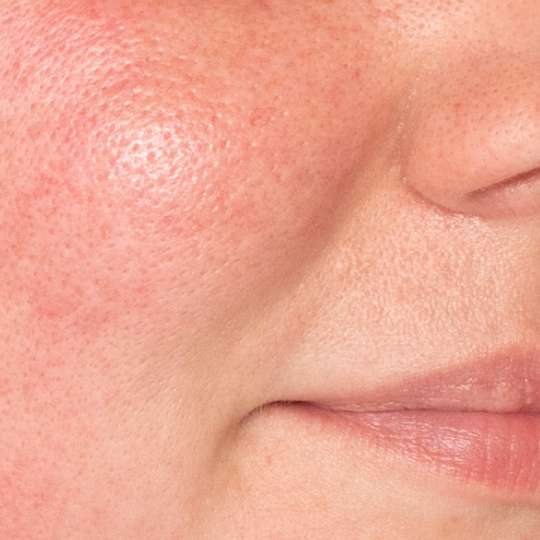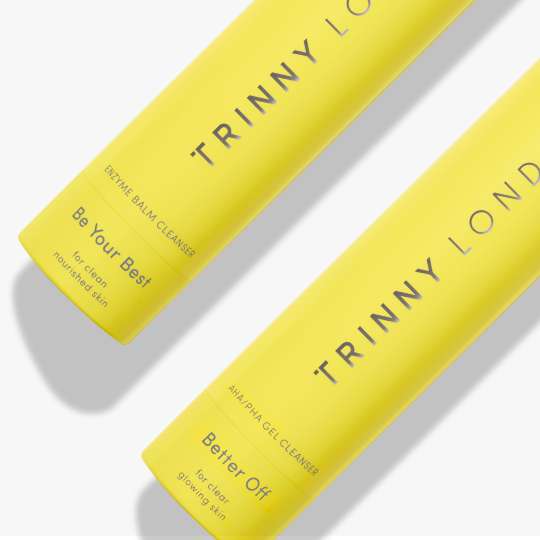

How to expand your skincare for sensitive skin
Having sensitive skin doesn’t mean that you’re confined to a life of unexciting products, it’s just about bearing key considerations in mind as you go. Think of it as taking the scenic route to finding your perfect routine, rather than diving straight in.
Begin with the basics
Think of finding the perfect skincare for sensitive skin like learning a new language. You’ll need to master the basics of conversation, like saying “hello” or “goodbye”, before you move onto the more technical (and often more interesting) parts inbetween. Cleansing and moisturising are the non-negotiable bookends of your routine if you have sensitive skin, and you’ll need to carry out both steps morning and night. Cleansing will remove any dirt and debris from your skin, while moisturising keep your skin soft and nourished, as well as forming a protective barrier. Once you have found a cleanser and moisturiser that works for your skin, then you can start to fill in the gaps between.
Don’t overwhelm your skin
You know that feeling at a party when everyone’s talking at once and you can’t quite hone into just one conversation? That’s how our skin feels when we overwhelm it with a whole new routine all at once. Slow and steady will always win the race when it comes to skincare for sensitive skin. Introduce just one new product at a time, using just twice a week, to check for potential irritation. If your skin is happy and responding well, you can start to use it more regularly. And, if this product is not meeting the needs of all your skincare concerns, you can start to include other products too. This will not only reduce the risk of a reaction, but help you to see what’s really making a difference to your complexion.
Go slow
Keen to incorporate products like liquid exfoliants and retinoids into your routine? Having sensitive skin doesn’t mean that these are a no-go, but you do need to tread more carefully than those with hardy complexions. It’s all about finding the right formulation and ingredients for you. Think of it like coffee – you wouldn’t recommend someone who was new to caffeine ordered a double shot espresso, rather you’d ease them in with a milky latte or chocolate-laden mocha first.
When it comes to liquid exfoliants, start with poly-hydroxy acids over beta or alpha. They have a larger molecule size, meaning they work more on the very surface levels of the skin, with minimal risk of irritation. Some, like lactobionic acid, have humectant properties too, meaning they draw moisture into the skin as well as gently exfoliating. Retinoids are a complex category, and refers to a family of ingredients. Retinol is the most widely used, but has the highest risk of redness and flaking. Look instead to retinal or hydroxypinacolone retinoate, which give the same fine-line reducing effects with minimal side effects. The kind of formula you choose matters too, as the best ones will include more than one ingredient, having been carefully crafted to minimise and counteract any potential irritation.
Steer clear of fragrance
We know that fragrance can make applying your products feel like a more sensorial, joyful experience, but they are one of the biggest causes of irritation. Both natural and synthetic fragrances can annoy sensitive skin, and will most likely be listed as “parfum” on the INCI list. To stay on the safe side, we would recommend products that are fragrance free. It might not feel quite as special to use, but fragrance isn’t an indicator of effectiveness, so it’s worth skipping in the quest for better skin.
Reinforce the skin’s barrier
As much as we want our skin to look gorgeous and glowing, remember that its main function is to act as a barrier. It’s there to protect all the important stuff inside our bodies, and keep potential stressors, like pollution and bacteria, out. We need it to be strong and healthy in order to work at its best. When your skin is sensitive, the skin barrier is often impaired, meaning it doesn’t work quite so well. Stocking up on restorative ingredients like vitamin F, squalane and ceramides will help to reinforce the barrier.
Read, watch and be inspired...


